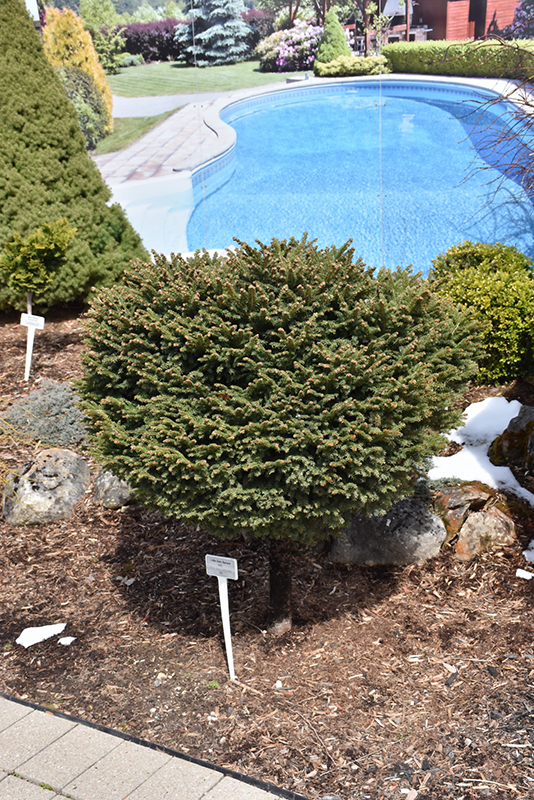Plant Library
Little Gem Spruce (tree form)
Picea abies 'Little Gem (tree form)'
Height: 24 inches
Spread: 24 inches
Sunlight:
![]()
![]()
Hardiness Zone: 4a
Other Names: Norwegian Spruce
Description:
An extremely small and compact tree; adaptable and hardy, very slow growing; excellent choice for small-scale topiary form in rock gardens or as a year-round garden detail element
Ornamental Features
Little Gem Spruce (tree form) is a dwarf conifer which is primarily valued in the garden for its highly ornamental lollipop-like shape. It has rich green evergreen foliage which emerges lime green in spring. The needles remain green throughout the winter.
Landscape Attributes
Little Gem Spruce (tree form) is a dense multi-stemmed evergreen shrub, selected and trained to grow in a small tree-like form with the primary plant grafted high atop a standard. Its relatively fine texture sets it apart from other landscape plants with less refined foliage.
This is a relatively low maintenance shrub. When pruning is necessary, it is recommended to only trim back the new growth of the current season, other than to remove any dieback. Deer don't particularly care for this plant and will usually leave it alone in favor of tastier treats. It has no significant negative characteristics.
Little Gem Spruce (tree form) is recommended for the following landscape applications;
- Mass Planting
- General Garden Use
Planting & Growing
Little Gem Spruce (tree form) will grow to be about 24 inches tall at maturity, with a spread of 24 inches. It has a low canopy with a typical clearance of 2 feet from the ground. It grows at a slow rate, and under ideal conditions can be expected to live for 50 years or more.
This shrub does best in full sun to partial shade. It does best in average to evenly moist conditions, but will not tolerate standing water. It is not particular as to soil type or pH, and is able to handle environmental salt. It is highly tolerant of urban pollution and will even thrive in inner city environments. This is a selected variety of a species not originally from North America.






